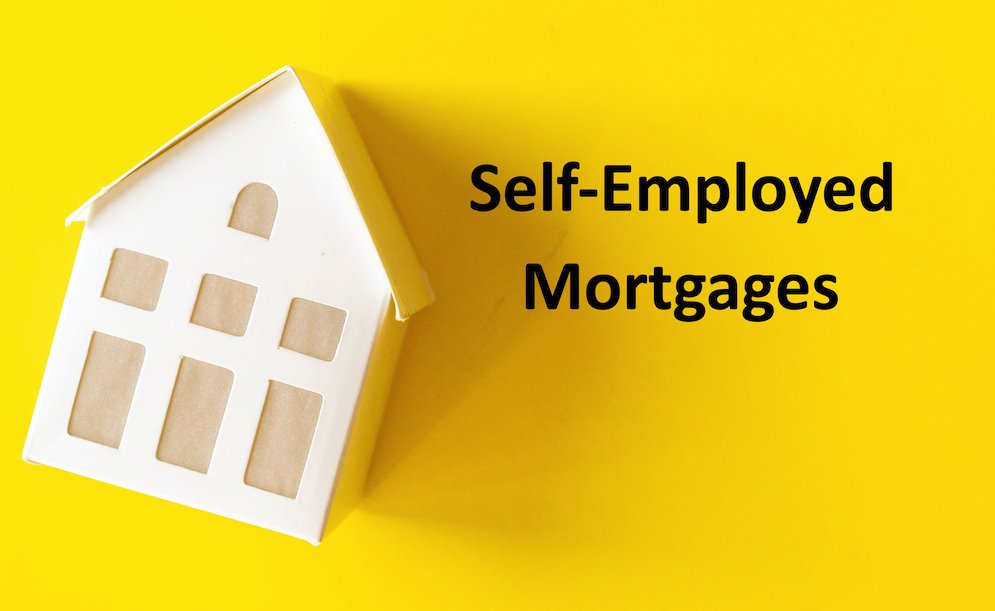Being self-employed can make the path to homeownership feel challenging due to the unique financial circumstances it entails. However, self-employed mortgage options are designed specifically to meet the needs of entrepreneurs, offering solutions that align with your independent lifestyle.
Mortgages for Self-Employed Individuals
Tailored Mortgage Solutions for the Self-Employed

Your home may be repossessed if you do not keep up with payments.
We recommend choosing a plan that suits your financial comfort and long-term stability.
What Are Self-Employed Mortgages?
Self-employed mortgages, also known as freelancer or contractor mortgages, are designed specifically for individuals who earn their income through self-employment or freelancing.
Unlike traditional mortgages that rely heavily on stable, salaried income from permanent employment, self-employed mortgages consider the distinct financial circumstances of self-employed individuals. They evaluate diverse income sources, such as business profits, freelance contracts, or irregular earnings, and provide tailored criteria to accommodate these unique financial realities.
This flexibility ensures that self-employed borrowers can access the financing they need while reflecting the true nature of their income.
The Benefits of Self-Employed Mortgages
Self-employed mortgages offer more than just adaptability—they provide solutions tailored to the realities of self-employment:
1. Income Adaptability:
These mortgages embrace the variable nature of self-employment income, accounting for diverse earnings from freelance work, business profits, and contracts.
2. Customized Approval Criteria:
Lenders recognize the unique aspects of self-employment, offering flexible underwriting standards designed to align with the challenges and opportunities of running your own business.
3. Support for New Ventures:
For those new to self-employment, lenders assess projected income, business potential, and industry experience, providing opportunities to pursue homeownership sooner than anticipated.
4. Expanded Borrowing Power:
By factoring in multiple income streams, self-employed mortgages may offer higher borrowing limits compared to traditional options, opening doors to a wider range of property choices.
5. Competitive Rates:
Contrary to popular belief, self-employed mortgages often feature competitive interest rates, ensuring affordability without compromising the flexibility you need.
These benefits make self-employed mortgages an excellent choice for entrepreneurs, freelancers, and business owners seeking a financial solution that truly understands their needs.
Qualifying for a Self-Employed Mortgage
Securing a mortgage as a self-employed individual may seem challenging, but with the right approach and preparation, it’s entirely achievable. Here’s a breakdown of what you need to succeed:
1. Prove Income Consistency
Lenders prioritize stability. To build their confidence, provide two to three years of financial records, including tax returns, profit-and-loss statements, and business accounts. These documents should clearly demonstrate steady and reliable income trends.
2. Prepare Comprehensive Documentation
Transparent financial documentation is essential. Substantiate your earnings with bank statements, invoices, client contracts, and records of additional income sources. These details give lenders a complete picture of your financial health.
3. Maintain a Healthy Debt-to-Income Ratio
Your debt-to-income (DTI) ratio reflects your ability to balance mortgage payments with existing obligations. A low DTI ratio signals financial responsibility, making you a more attractive borrower.
4. Build a Strong Credit History
A solid credit score is your ticket to better mortgage terms and lower interest rates. Regularly review your credit report, address inaccuracies, and focus on maintaining timely repayments to enhance your credit profile.
5. Secure a Substantial Deposit
Although deposits typically range between 5% and 20% of the property’s value, a larger deposit can work in your favor. It not only demonstrates your financial commitment but also improves your chances of securing favorable loan terms.
A personalised approach to your mortgage journey
With an SZ Financial Services Ltd adviser providing personalised support, the mortgage process becomes more manageable and less time-consuming. All aspects of securing the most competitive mortgage rates are handled efficiently, allowing time to focus on other priorities—whether preparing for a new home or benefiting from the financial advantages of a remortgage.
Self-Employed FAQs
Self-employed individuals and small business owners can indeed obtain a mortgage. However, stepping onto the property ladder and identifying a suitable mortgage aligned with variable income and personal circumstances can be more complex. Lenders typically require assurance that monthly repayments are not only affordable but sustainable over the long term. As self-employment often involves fluctuating income, this can be perceived as a higher risk by lenders, potentially leading to greater scrutiny during the application process.
Banks and lenders typically classify you as self-employed if you own more than 20% to 25% of a business and earn the majority of your income from it. This could include roles such as contractor, sole trader, or company director.
In most cases, a minimum of nine to twelve months of trading is required before applying for a self-employed mortgage. However, the majority of lenders will prefer to see a trading history of at least three years.
Self-certification mortgages previously allowed self-employed individuals to declare their income without the need for proof. However, following the 2008 credit crunch, these mortgages largely disappeared from the market. In 2014, they were officially banned as part of the Mortgage Market Review (MMR) regulations.
There is no mortgage product specifically designed exclusively for the self-employed. However, by providing detailed information on monthly income, savings, and future work projections, self-employed individuals can access the same range of mortgage products available to full-time employees.
For those whose businesses were impacted by the COVID-19 pandemic or who may not meet the documentation requirements of mainstream lenders, working with an experienced mortgage broker can open up a wider range of options. Mortgage brokers have access to exclusive deals that may not be publicly available, ensuring that solutions are tailored to individual financial situations.
